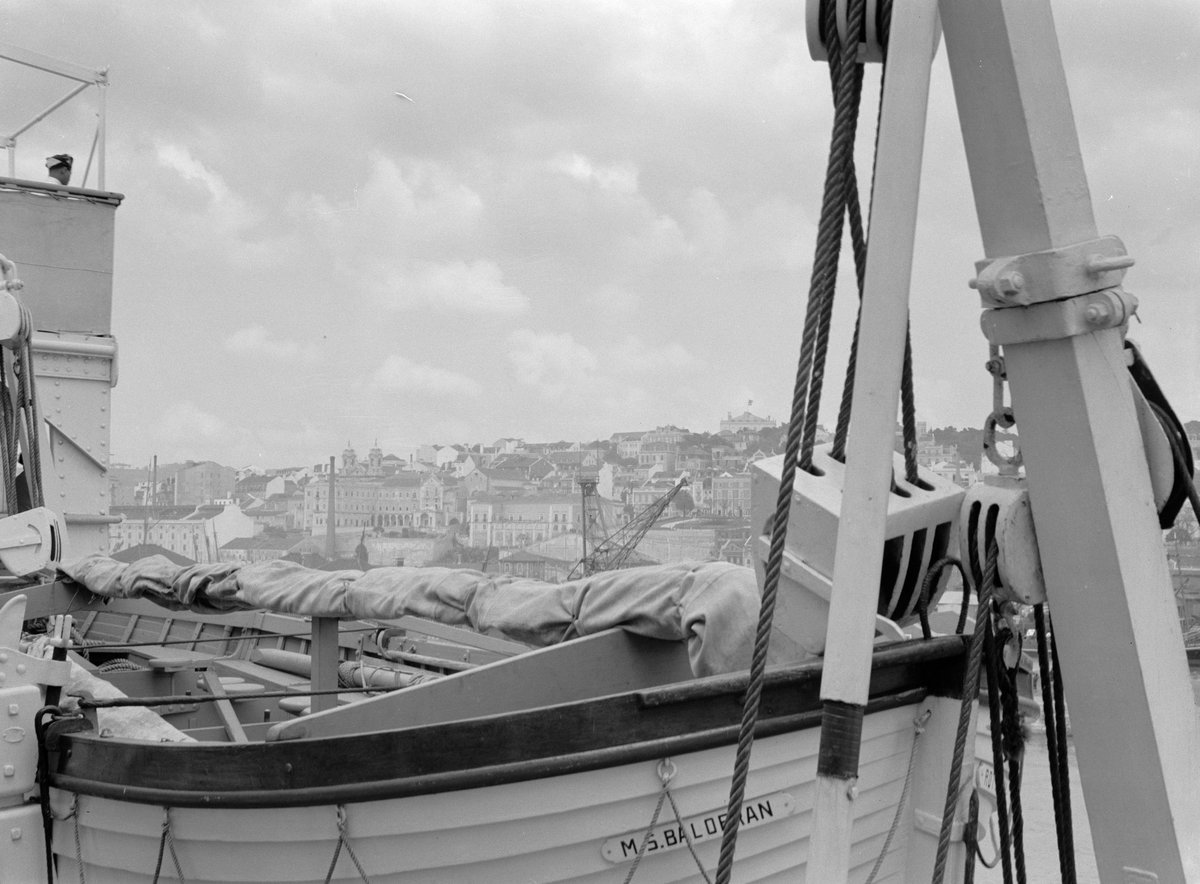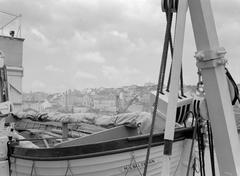
Comprehensive Guide to Visiting Braquiquito, Apelação, Portugal
Date: 19/07/2024
Introduction
Braquiquito, nestled in the picturesque parish of Apelação, Portugal, is a destination that seamlessly blends historical richness with vibrant contemporary culture. This quaint village, with roots tracing back to the Lusitanians of the Bronze Age, offers a captivating journey through time. Over the centuries, Braquiquito has witnessed the influences of the Romans, Visigoths, Moors, and the Christian Reconquest, each leaving an indelible mark on its cultural and architectural landscape. Notable sites such as the Church of São João Baptista and Braquiquito Castle stand as testaments to these diverse historical epochs (source).
Visitors to Braquiquito can immerse themselves in its rich cultural heritage through annual festivals like the Festa de São João and the Feira Medieval, which celebrate traditional music, dance, and culinary delights. The village’s culinary offerings, including local specialties like Bacalhau à Brás and Pastéis de Nata, provide a delicious taste of Portuguese culture. For those planning a visit, this guide offers comprehensive information on the best times to visit, ticket prices, visiting hours, travel tips, and accommodation options to ensure a memorable experience in this historical gem (source).
Table of Contents
- Introduction
- Historical Background
- Cultural Significance
- Visitor Information
- Best Time to Visit
- Getting There
- Accommodation
- Local Transportation
- Local Cuisine
- Safety Tips
- Health and Wellness
- Attractions and Activities
- Shopping
- Events and Festivals
- Connectivity
- Sustainable Travel
- FAQ
- Conclusion
Historical Background
Early Settlement and Origins
Braquiquito’s earliest known inhabitants were the Lusitanians, an indigenous people of the Iberian Peninsula. Archaeological findings suggest that the area was settled as early as the Bronze Age. The Lusitanians were known for their resistance against Roman conquest, which began in the 2nd century BCE. Despite their efforts, the Romans eventually established control over the region, integrating it into the province of Lusitania.
Roman Influence
Under Roman rule, Braquiquito experienced significant development. The Romans introduced advanced agricultural techniques, road networks, and architectural innovations. Remnants of Roman villas and roads have been discovered in the vicinity, indicating the area’s importance during this period. The Roman influence is still evident in the local architecture and infrastructure, with several ancient structures partially preserved.
Medieval Period
The fall of the Roman Empire in the 5th century CE led to a period of instability and transformation. Braquiquito, like much of the Iberian Peninsula, saw a succession of rulers, including the Visigoths and later the Moors. The Moorish occupation, which began in the early 8th century, left a lasting impact on the region’s culture, architecture, and agricultural practices. The introduction of new crops, irrigation systems, and architectural styles during this period significantly shaped the local landscape.
Christian Reconquest
The Christian Reconquest culminated in the 12th century with the establishment of the Kingdom of Portugal. Braquiquito was gradually integrated into the expanding Christian territories. The construction of churches and fortifications during this period marked the region’s transition from Moorish to Christian rule. The Church of São João Baptista, a notable historical landmark in Apelação, dates back to this era and reflects the architectural styles of the time.
Renaissance and Early Modern Period
The Renaissance period brought about a cultural and economic revival in Braquiquito. The discovery of new trade routes and the Age of Exploration had a profound impact on Portugal, and Braquiquito benefited from the increased trade and wealth. The construction of manor houses and the development of local industries, such as textiles and ceramics, contributed to the region’s prosperity. The influence of Renaissance art and architecture is evident in several buildings that still stand today.
19th and 20th Centuries
The 19th century was a period of significant change for Braquiquito. The liberal revolutions and the establishment of a constitutional monarchy in Portugal brought about political and social reforms. The construction of railways and improved transportation networks facilitated the movement of goods and people, further integrating Braquiquito into the national economy. The 20th century saw continued modernization, with the introduction of electricity, improved infrastructure, and the growth of local industries.
Contemporary Era
In recent decades, Braquiquito has evolved into a vibrant community that balances its rich historical heritage with modern development. The preservation of historical sites and the promotion of cultural tourism have become key priorities. Efforts to restore and maintain historical landmarks, such as the Church of São João Baptista and the remnants of Roman structures, have been successful in attracting visitors and preserving the region’s cultural legacy.
Cultural Significance
Braquiquito hosts several annual festivals and events that celebrate its rich history and cultural heritage. The Festa de São João, held in honor of the patron saint, is a major event that features traditional music, dance, and culinary delights. These cultural celebrations provide a glimpse into the region’s past and offer visitors an immersive experience.
Visitor Information
Tickets and Visiting Hours
Most attractions in Braquiquito, including the Church of São João Baptista and Braquiquito Castle, are open from 10 AM to 6 PM. Entry fees vary; for example, the Braquiquito Castle charges €5 for adults and €3 for children. It is advisable to check specific sites’ official websites for exact times and prices.
Travel Tips
- Guided Tours: Consider booking a guided tour for a more in-depth exploration of Braquiquito’s historical sites. Prices typically range from €10 to €20 per person.
- Local Etiquette: Be respectful of local customs and traditions. A handshake is a common form of greeting, and learning a few basic Portuguese phrases can be appreciated.
- Currency: The local currency is the Euro, and most places accept credit cards.
Nearby Attractions
Other historical sites and attractions near Braquiquito include:
- Sintra: Known for its 19th-century Romanticist architecture and landscapes.
- Lisbon: The capital city, offering rich history, culture, and vibrant nightlife.
- Cascais: A coastal town known for its beautiful beaches and elegant marina.
Accessibility
Most attractions are accessible, but some medieval structures may have limited access for those with mobility issues. Visitors are advised to check accessibility information on specific sites’ websites.
Best Time to Visit
Braquiquito enjoys a Mediterranean climate with mild, wet winters and hot, dry summers. The best time to visit is during the spring (April to June) and autumn (September to October) when the weather is pleasant, and the tourist crowds are thinner. During these periods, temperatures range from 15°C to 25°C, making it ideal for outdoor activities and sightseeing.
Getting There
Braquiquito is accessible via Lisbon, which is approximately 20 kilometers away. Visitors can fly into Lisbon Portela Airport (LIS) and then take a taxi, rental car, or public transportation to reach Braquiquito. The Lisbon Metro and CP - Comboios de Portugal train services provide convenient options for reaching the town.
Accommodation
Braquiquito offers a range of accommodation options to suit different budgets and preferences. From charming bed and breakfasts to luxurious hotels, visitors can find suitable lodging. Some popular choices include:
- Casa do Braquiquito: A quaint bed and breakfast known for its warm hospitality and traditional Portuguese decor.
- Hotel Apelação: A modern hotel offering comfortable rooms, a swimming pool, and easy access to local attractions.
- Quinta da Braquiquito: A luxurious estate with spacious rooms, beautiful gardens, and top-notch amenities.
Local Transportation
While Braquiquito is a small town, having a rental car can be advantageous for exploring the surrounding areas. However, for those who prefer not to drive, the town is well-served by local buses and taxis. Walking and cycling are also great ways to explore the town’s charming streets and scenic landscapes.
Local Cuisine
Braquiquito offers a delightful culinary experience with a focus on traditional Portuguese dishes. Some must-try foods include:
- Bacalhau à Brás: A popular dish made with shredded salted cod, onions, and potatoes.
- Caldo Verde: A comforting soup made with kale, potatoes, and chorizo.
- Pastéis de Nata: Delicious custard tarts that are a staple in Portuguese bakeries.
For an authentic dining experience, visit local restaurants such as:
- Restaurante O Braquiquito: Known for its traditional Portuguese dishes and cozy atmosphere.
- Tasca do Zé: A family-run eatery offering homemade meals and friendly service.
Safety Tips
Braquiquito is generally a safe destination for tourists. However, it is always wise to take standard precautions:
- Personal Belongings: Keep an eye on your belongings, especially in crowded areas.
- Emergency Numbers: The emergency number in Portugal is 112. It is advisable to have this number saved on your phone.
- Local Laws: Familiarize yourself with local laws and customs to avoid any misunderstandings.
Health and Wellness
Visitors should ensure they have travel insurance that covers health care. Portugal has a good healthcare system, and pharmacies are widely available. It is also recommended to carry any necessary medications and a basic first-aid kit.
Attractions and Activities
Braquiquito offers a variety of attractions and activities for visitors:
- Historical Sites: Explore the town’s rich history by visiting landmarks such as the Igreja de São Pedro and the Braquiquito Castle.
- Nature Trails: Enjoy hiking and nature walks in the scenic landscapes surrounding Braquiquito. The Serra de Montejunto offers beautiful trails and panoramic views.
- Local Markets: Experience the local culture by visiting the weekly market, where you can find fresh produce, handmade crafts, and traditional goods.
Shopping
Braquiquito has several shops and boutiques where visitors can purchase souvenirs and local products. Popular items include:
- Ceramics: Hand-painted ceramics are a traditional craft in the region.
- Wine: The Apelação region is known for its excellent wines. Visit local wineries for tastings and to purchase bottles to take home.
- Textiles: Look for beautifully woven textiles and linens, which make great gifts and souvenirs.
Events and Festivals
Braquiquito hosts several events and festivals throughout the year, offering a glimpse into the local culture and traditions:
- Festa de São Pedro: Celebrated in June, this festival honors the town’s patron saint with parades, music, and traditional dances.
- Harvest Festival: Held in September, this event celebrates the grape harvest with wine tastings, food stalls, and live entertainment.
- Christmas Market: In December, the town transforms into a festive wonderland with a Christmas market featuring local crafts, food, and holiday decorations.
Connectivity
Staying connected while in Braquiquito is easy. Most hotels and cafes offer free Wi-Fi. For those needing constant internet access, consider purchasing a local SIM card or an international roaming plan.
Sustainable Travel
To minimize your environmental impact while visiting Braquiquito, consider the following tips:
- Public Transport: Use public transportation or walk whenever possible.
- Local Products: Support local businesses by purchasing locally made products and dining at local restaurants.
- Waste Management: Dispose of waste properly and participate in recycling programs.
FAQ
- What are the visiting hours for Braquiquito’s attractions? Most attractions are open from 10 AM to 6 PM. Check specific sites’ websites for exact times.
- How much are tickets for Braquiquito Castle? Tickets are €5 for adults and €3 for children.
- Are guided tours available? Yes, guided tours are available and typically cost between €10 and €20 per person.
- Is Braquiquito safe for tourists? Yes, Braquiquito is generally safe. Standard precautions are advised.
Conclusion
Braquiquito, Apelação, Portugal, offers a rich historical narrative and vibrant cultural experience. From its ancient origins to its contemporary significance, the region’s history is a testament to its resilience and adaptability. By preserving its historical landmarks and celebrating its cultural heritage, Braquiquito continues to captivate visitors and honor its storied past. For a seamless visit, remember to check updated travel information and consider downloading the Audiala mobile app for more travel tips and updates (source).
References
- Exploring Braquiquito, Apelação - Visiting Hours, Tickets, and Historical Insights, 2024, Author
- Complete Guide to Visiting Braquiquito - Best Times, Tickets, and Tips for Apelação’s Historical Gem, 2024, Author
- Discovering Braquiquito - A Guide to Visiting Hours, Tickets, and Cultural Highlights in Apelação, Portugal, 2024, Author
